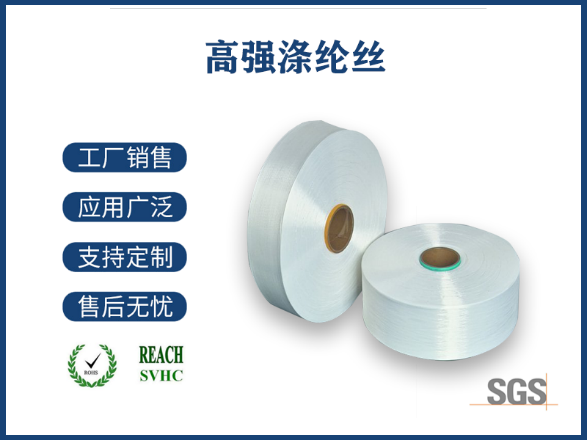发布时间:2025-03-27 08:16:23 人气:71
The Rise of Recycled Polyester: A Sustainable Fashion Revolution In an era where environmental consciousness is no longer a choice but a necessity, the fashion industry is undergoing a transformative shift. Recycled polyester, often referred to as rPET, has emerged as a beacon of sustainability, offering a viable alternative to traditional polyester. This innovative material not only reduces waste but also conserves valuable resources, making it a cornerstone of eco-friendly fashion.
Recycled polyester, or rPET, is a synthetic fiber made from recycled plastic, primarily PET (polyethylene terephthalate) bottles. The process involves collecting, cleaning, and melting down these bottles to create new polyester fibers. This method significantly reduces the need for virgin polyester, which is derived from petroleum, a non-renewable resource. The environmental benefits of recycled polyester are manifold. First, it helps reduce plastic waste, which is a major contributor to pollution, especially in our oceans. Second, it consumes less energy and water compared to the production of virgin polyester. Third, it helps lower greenhouse gas emissions, making it a more sustainable option for the fashion industry.
The journey of recycled polyester begins with the collection of PET bottles. These bottles are then sorted, cleaned, and shredded into small flakes. The flakes are melted and extruded into fibers, which can be spun into yarn. This yarn is then used to create a variety of textiles, from clothing to upholstery. One of the key advantages of this process is its efficiency. It requires fewer resources and generates less waste compared to the production of virgin polyester. Moreover, the quality of recycled polyester is comparable to that of its virgin counterpart, making it a viable option for high-quality garments.

The environmental impact of recycled polyester is profound. By diverting plastic waste from landfills and oceans, it helps mitigate the growing problem of plastic pollution. According to a study by the Ellen MacArthur Foundation, recycling one ton of PET bottles can save up to 3.8 barrels of oil and reduce carbon dioxide emissions by 3.1 tons. Moreover, recycled polyester requires less energy to produce. The production of virgin polyester is energy-intensive, involving the extraction and processing of petroleum. In contrast, the production of recycled polyester consumes up to 59% less energy, making it a more sustainable option.
Recycled polyester is increasingly being used in the fashion industry. From activewear to haute couture, this versatile material is making its mark. Brands like Patagonia, Adidas, and H&M have embraced recycled polyester, incorporating it into their collections to promote sustainability. One of the most notable applications of recycled polyester is in activewear. The material’s durability, moisture-wicking properties, and breathability make it ideal for sportswear. Additionally, its ability to retain color and shape after multiple washes ensures longevity, reducing the need for frequent replacements.
While recycled polyester offers numerous benefits, it is not without its challenges. One of the main concerns is the potential for microplastic pollution. When garments made from recycled polyester are washed, they can release microplastics into the water supply. However, advancements in filtration technology and the development of biodegradable fibers are addressing this issue. Another challenge is the limited availability of high-quality recycled polyester. As demand for sustainable materials grows, there is a need for more efficient recycling processes and infrastructure to ensure a steady supply of high-quality rPET. Despite these challenges, the future of recycled polyester looks promising. Innovations in recycling technology, coupled with increasing consumer demand for sustainable products, are driving the growth of this market. As more brands adopt recycled polyester, it is poised to become a staple in the fashion industry, paving the way for a more sustainable future.
As consumers, we play a crucial role in the adoption of recycled polyester. By choosing garments made from recycled materials, we can support sustainable practices and reduce our environmental footprint. Additionally, we can advocate for transparency in the fashion industry, encouraging brands to disclose the materials used in their products. Education and awareness are key. Understanding the benefits of recycled polyester and its impact on the environment can empower us to make informed choices. By supporting brands that prioritize sustainability, we can drive positive change in the fashion industry.
Technology is playing a pivotal role in the advancement of recycled polyester. Innovations in recycling processes, such as chemical recycling, are enhancing the quality and efficiency of rPET production. Chemical recycling breaks down plastic waste into its molecular components, allowing for the creation of high-quality polyester fibers. Moreover, digital platforms and blockchain technology are enabling greater transparency in the supply chain. Consumers can now trace the origins of their garments, ensuring that they are made from recycled materials. This level of transparency fosters trust and accountability, encouraging more brands to adopt sustainable practices.
Recycled polyester is more than just a material; it is a symbol of the sustainable fashion revolution. By transforming plastic waste into high-quality textiles, it offers a practical solution to some of the most pressing environmental challenges. As the fashion industry continues to evolve, recycled polyester will undoubtedly play a central role in shaping a more sustainable future.